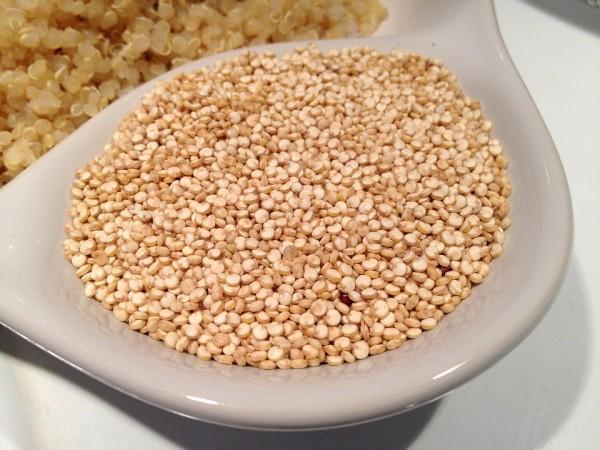
Quinoa is a pseudocereal. It is pronounced as KEEN-wah and is available in three varieties -- black, white and red.
ALSO READ: Sex is important for you ladies! Here's why
ALSO READ: Mother refuses to breastfeed "alien" baby born in Bihar, India [VIDEO]
Here are top 7 reasons why superfood quinoa should be a part of our diet.
- Quinoa is a type of seed consisting of many nutrients like manganese, iron, copper, protein, zinc, magnesium, phosphorus, folate and potassium. Apart from these, quinoa also has carbohydrates and fats along with traces of vitamins B1, B2, B3, B6, E, calcium and omega-3 fatty acids too.
- This nutritious pseudo-cereal also got high quantities of two flavonoids called quercetin and kaempferol. These are potent plant antioxidants which benefit health by depleting the risk of pancreatic cancer, apart from being anti-cancerous these molecules also got anti-viral and anti-inflammatory qualities. These molecules also showed anti-depressant impact in animal studies.
- Quinoa is great for people suffering from gluten intolerance as it is gluten-free. It is healthy for people consuming a gluten-free diet as it provides them with various nutrients and also increases the level of antioxidants.
- This superfood is rich in fibre than most other grains. It got 2.5 grams of soluble fibre per cup, this helps in lowering cholesterol and blood sugar levels. This pseudo-cereal also helps in losing weight.
- This amazing superfood is protein-packed and also provides essential amino acids unlike most of the plant foods that we eat. It can be considered as a rich source of protein for those following vegan and vegetarian diet.
- Soaking quinoa in water before consuming it could help in lowering the phytic acid present in it, this would help in absorbing more amount of minerals. Phytic acid hinders mineral absorption.
- It enhances the metabolic rate, it aids in lowering blood sugar, this finding was made after researchers carried out two studies, one was conducted on rats while the other was conducted on humans.
P.S. People suffering from recurring kidney stones should avoid quinoa as it is rich in oxalates which deplete calcium absorption in the body and can lead to problems.

















